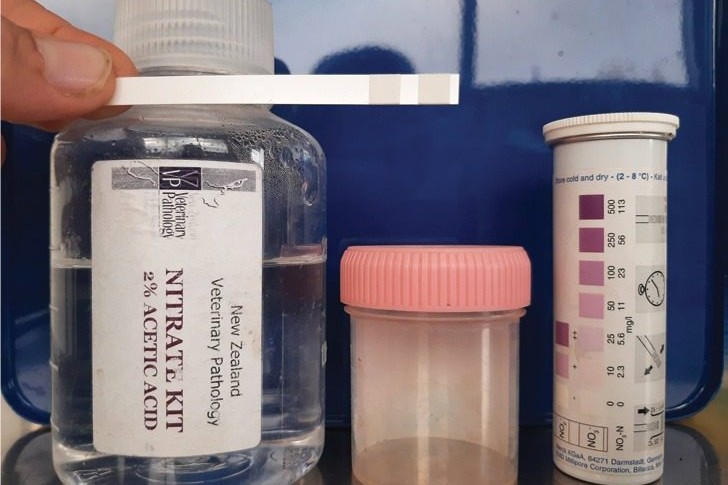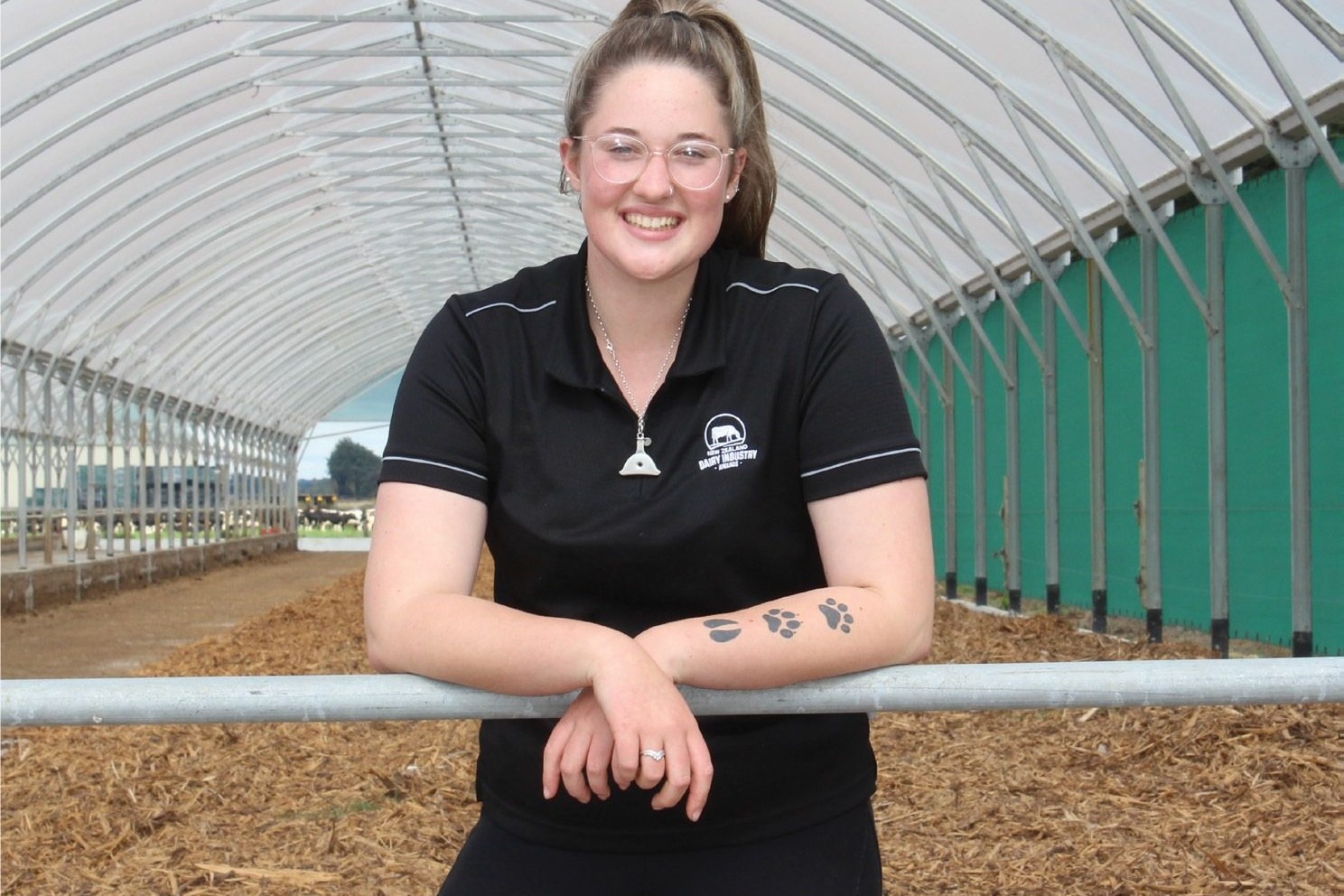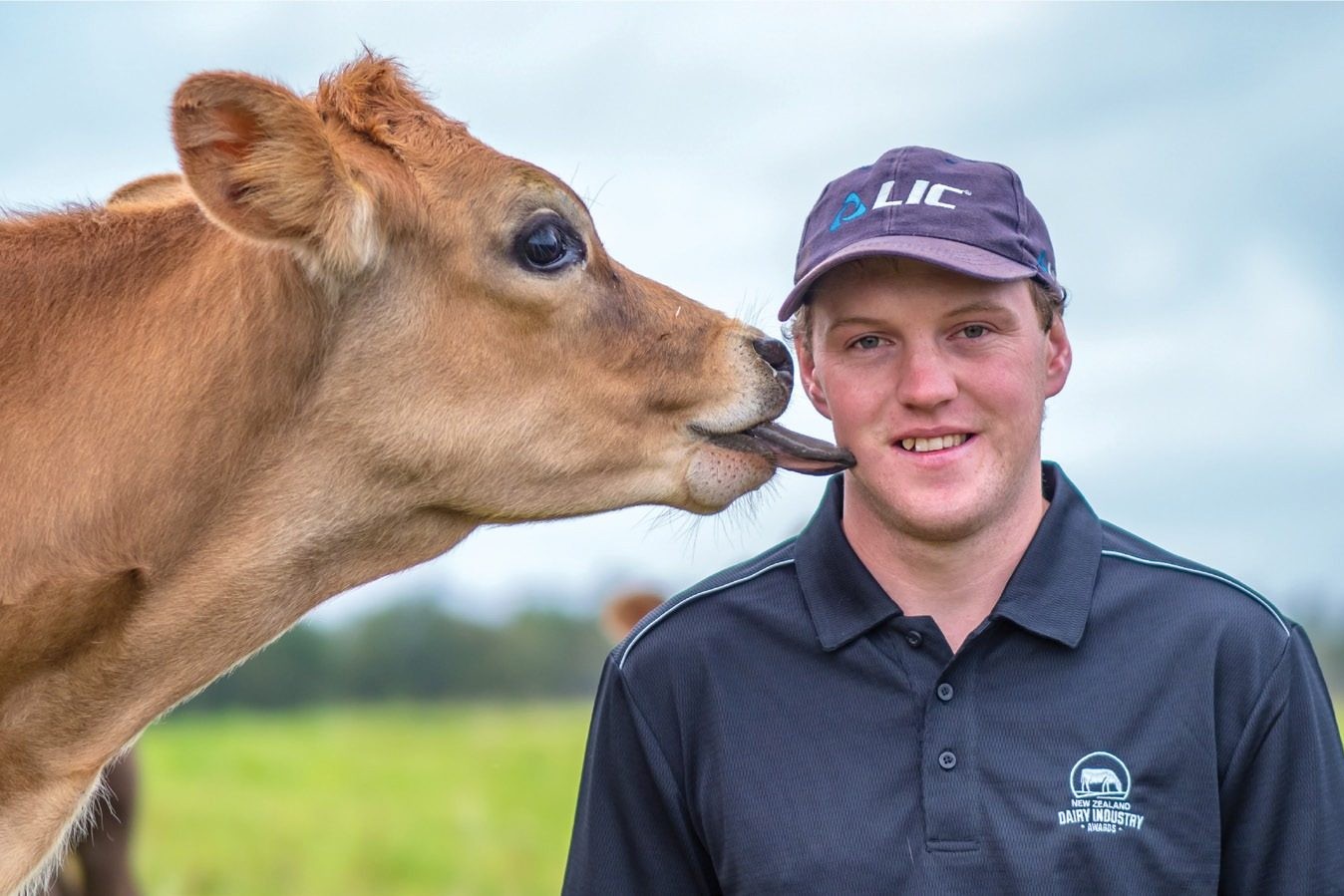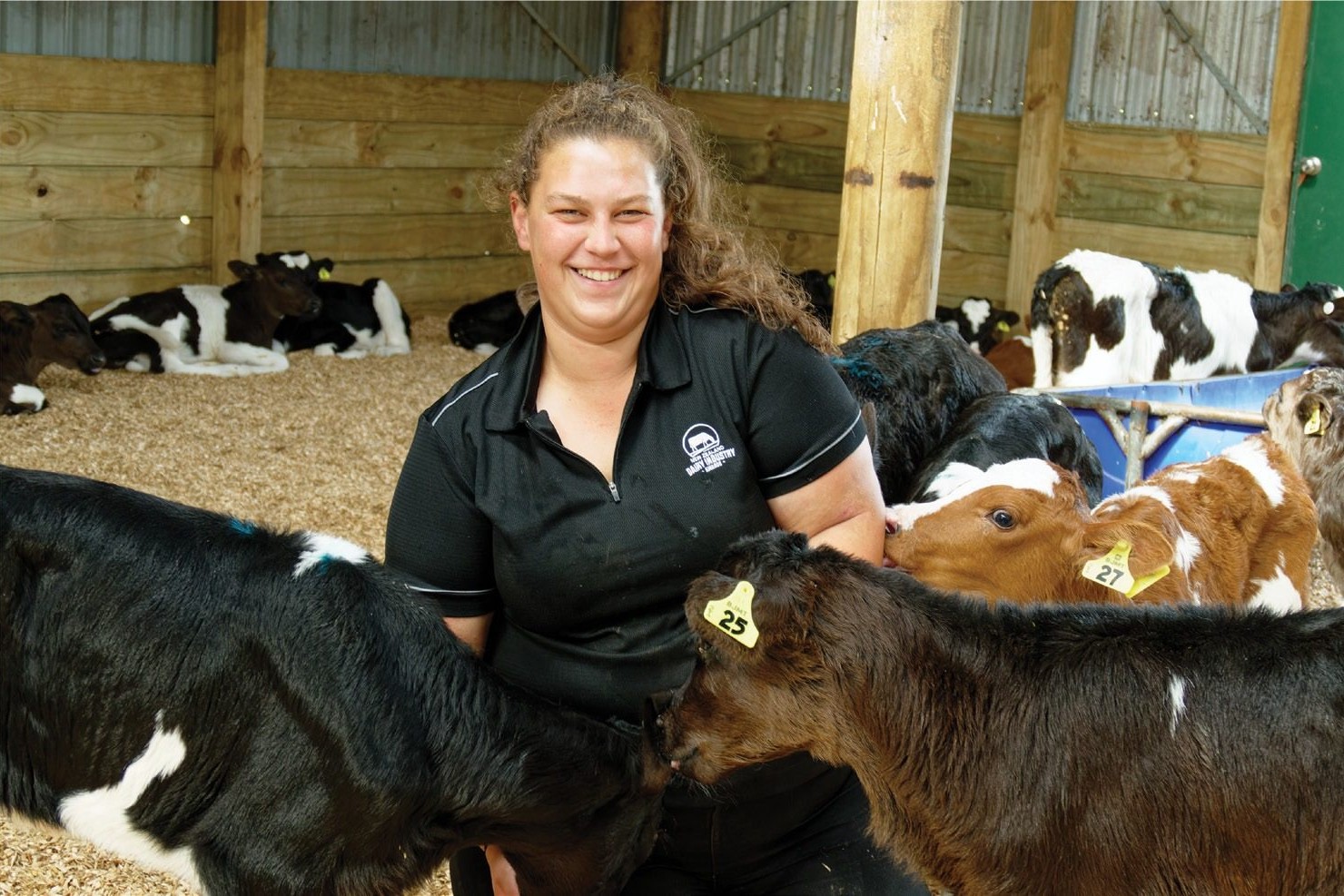Words by Anne Lee, photo by Johnny Houston
Maria Alvarez’s advice to other women looking to advance their careers in dairying is to seek out the right people and avoid those who have an issue with gender.
The 32-year-old is this year’s Canterbury/North Otago Farm Manager of the Year and says that when applying for jobs in the past she did come up against those who weren’t happy to employ a female, particularly one who is single and especially when it came to contract milking jobs.
“But you can just avoid those people and look for people who are supportive – there are plenty of positive, supportive people,” she says.
Originally from Argentina, Maria’s positive, can-do attitude and strong sense of team has helped make her first year managing the 180ha Dairy Holding Ltd (DHL) property near Ealing a huge success.
That’s not to say it didn’t come without its challenges with her second in charge (2IC) breaking his leg at the outset of calving, leaving her with three new, junior staff.
She says DHL’s systems, the great support she got from supervisor Aidan O’Leary, her team’s positive attitude and a huge amount of hard work got them through that initial peak work period.
Maria has been with DHL from the outset of her dairying career in New Zealand initially working for contract milkers Scott and Helen Searle at Rakaia.
NZ holiday sparked interest
Having grown up on a beef farm, Maria came to NZ on a working holiday after completing an agricultural engineering degree.
New Zealand dairying was often pointed to as a top performer when it came to efficiency during her studies.
“So, when I came here on holiday I thought – well I’m here, maybe I should give this dairying a go and see what they were talking about.”
She loved it and had fantastic teachers in Scott and Helen, quickly learning the skills involved in successful pasture systems.
She was with the couple for four and a half years with a small break in the middle while she travelled to Australia, working on a dairy farm there too – albeit a higher input, high tech farm.
By 2019, Maria had worked her way up to a 2IC/farm manager level with Scott and Helen but to make further progression she had to move on.
She had been applying for jobs and when the opportunity opened up on the 660-cow DHL farm near Ealing part way through the 2019-20 season she jumped at it, taking over as manager in January last year.
Respect is the key word when it comes to her leadership style and developing a great team spirit.
“If you treat people with respect then they respect you and you can achieve a sense of authority without people feeling like you’re trying to be above them.”
Her whole farm team is South American and she says the positive, energetic vibe brings a level of fun to even the tougher times.
Maria won the MorrisonAgri leadership award and the FarmRight feed management award and combining both skills has proven to be a winning formula.
Focus on pasture and cow fertility
Under her leadership the whole team is very focused on maintaining high quality pasture throughout the season and hitting targets for both pastures and animals.
Helping them understand how that helps drive farm performance so they too can learn and progress is important, she says.
“I will sit down with them at the computer and show them how we use technology like AgriNet to record pasture covers and data or HawkEye for fertiliser and effluent for example.”
One of the biggest achievements in this first full season has been a big improvement in reproductive performance with the six-week in-calf rate jumping a huge 17% to hit the industry target of 78% and not-in-calf rate dropping from 16% to 12% after 10 weeks mating.
Efforts to make that happen started last autumn, only weeks after Maria took up the farm manager role.
“We body condition score four times a year and in autumn any early calvers that weren’t where we wanted them to be and any lighter rising three-year-olds were put on once-a-day (OAD) milking.
“We dry off according to the calving date, again prioritising the early calvers,” she says.
Her attention to detail and dedication to observation during transition to fodder beet also paid off. For example, 15 cows who had not eaten bulbs were taken off the crop after 10 days, leaving all the others to transition right up to ad lib feeding without any problems.
Good weight gains meant cows were at targets for calving and then a focus again on body condition scoring (BCS) leading up to mating meant early actions in putting later calving cows onto once a day (OAD) milking gave them a better chance of getting back in calf quickly.
Mating didn’t come without its challenges either with one staff member down over that period meaning that when team members were on days off Maria was sometimes picking heats, cupping cows, marking cows to be mated and drafting out.
“It kept me fit,” she laughs.
Farming goals
She rides the farm at least once, but often twice a week to score pasture covers putting the data into Agrinet to produce a feed wedge and help in allocating pasture as well as identifying any looming feed surpluses or deficits.
With the goal for no bought-in feed, carefully managing feed demand and supply is paramount.
“The more often I’m monitoring the faster I can take action,” she says.
While surpluses are taken for silage there’s no mower on the farm so monitoring within the day is important too to make sure cows are hitting residuals right on time.
“Anything over 3100kg drymatter (DM)/ha will go for silage through the spring but we can also take a paddock out for re-grassing through the spring if we have a surplus.”
Over autumn, OAD milking, early culling and selective drying off help manage feed demand down.
This season Maria is set to achieve average nitrogen application rates of 190kgN/ha across the farm – 150kg N/ha in the effluent areas and 210kg N/ha on the rest of the farm.
She didn’t apply nitrogen during December and January when soil temperatures were above 17 degrees Celsius and pasture monitoring showed paddocks still growing up to 70kg DM/ ha/day. Herbage testing showed nitrogen levels dropping in February so urea applications were resumed.
Maria says her next goal is to have her own herd and go sharemilking. On a personal level, she wants to formally make New Zealand home by gaining citizenship.
Canterbury/ North Otago Farm Manager of the Year Merit Awards
Vetlife Most Promising Entrant – Megan Taylor
Alexanders Chartered Accountants Employee Engagement Award – Jaspreet Singh
MorrisonAgri Leadership Award – Maria Alvarez
FarmRight Feed Management Award – Maria Alvarez
Fonterra Dairy Management Award – Tharanga Senavirathna
DeLaval Livestock Management Award – Tharanga Senavirathna
NZDIA Power Play Award – Jaspreet Singh
Westpac Financial Management & Planning Award – Jaspreet Singh





